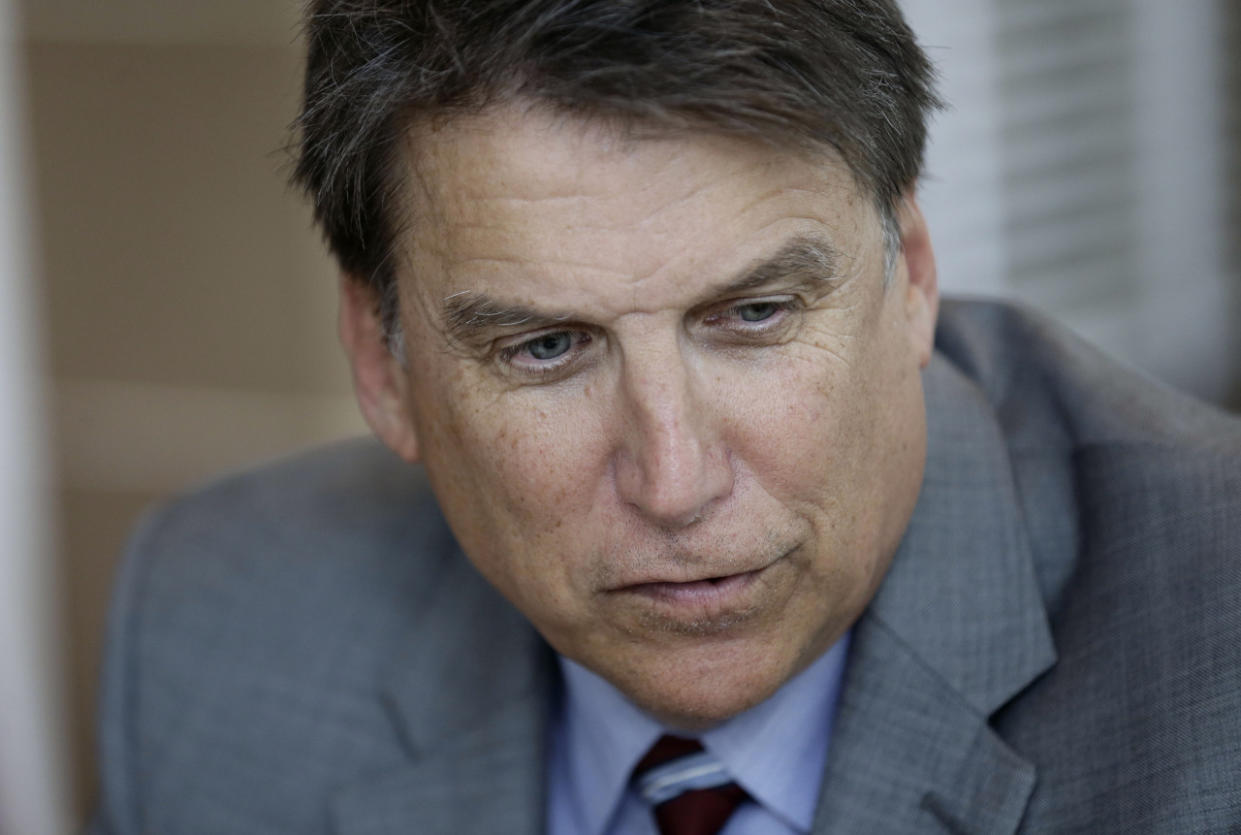N.C. Gov. Pat McCrory defends HB2: I can’t believe we’re talking about this

N.C. Gov. Pat McCrory makes remarks during an interview at the governor’s mansion in Raleigh, N.C., on April 12, 2016. (Photo: Gerry Broome/AP)
North Carolina Gov. Pat McCrory continues to defend the controversial “bathroom bill” he signed into law last month – rousing anger and boycotts by LGBT activists.
In an appearance on “The Kelly File” Thursday night, the much-maligned governor argued that the primary purpose of House Bill 2 (HB2) is to protect the privacy of children in locker rooms, showers and bathrooms.
“It’s the basic expectation of privacy that I hear from mom and dads and families that when their daughter or son goes into a facility, a restroom, they expect people of that gender … to be the only other ones in that. That’s the expectations that we’ve had for many, many years,” McCrory said to Fox News host Megyn Kelly.
House Bill 2 essentially requires a person to use only the public restrooms that correspond with his or her biological sex — as indicated on their birth certificate — and prohibits local governments from passing their own antidiscrimination ordinances.
North Carolina is already feeling the economic consequences of having a law on the books that many consider discriminatory. PayPal called off an expansion plan in Charlotte. Bruce Springsteen and other musicians have canceled concerts. Some politicians have also forbidden work travel for government employees in the Tar Heel State.
McCrory said he has no interest in being the “bathroom police.” He emphasized that the law was a response to what he considers government overreach by Charlotte when it passed an ordinance that would have allowed transgender people to use the restroom that corresponds with their gender identities.
“I don’t even know why we’re talking about this. This is not an issue that I started. This is an issue the left started, not the right,” McCrory replied. “And it’s not just women’s bathrooms; it’s boys’ bathrooms.”
Kelly pushed back by saying that there is a misconception that transgender people are more likely to molest, and the bill reinforces that misconception. McCrory said he did not like those fear-based arguments either.


